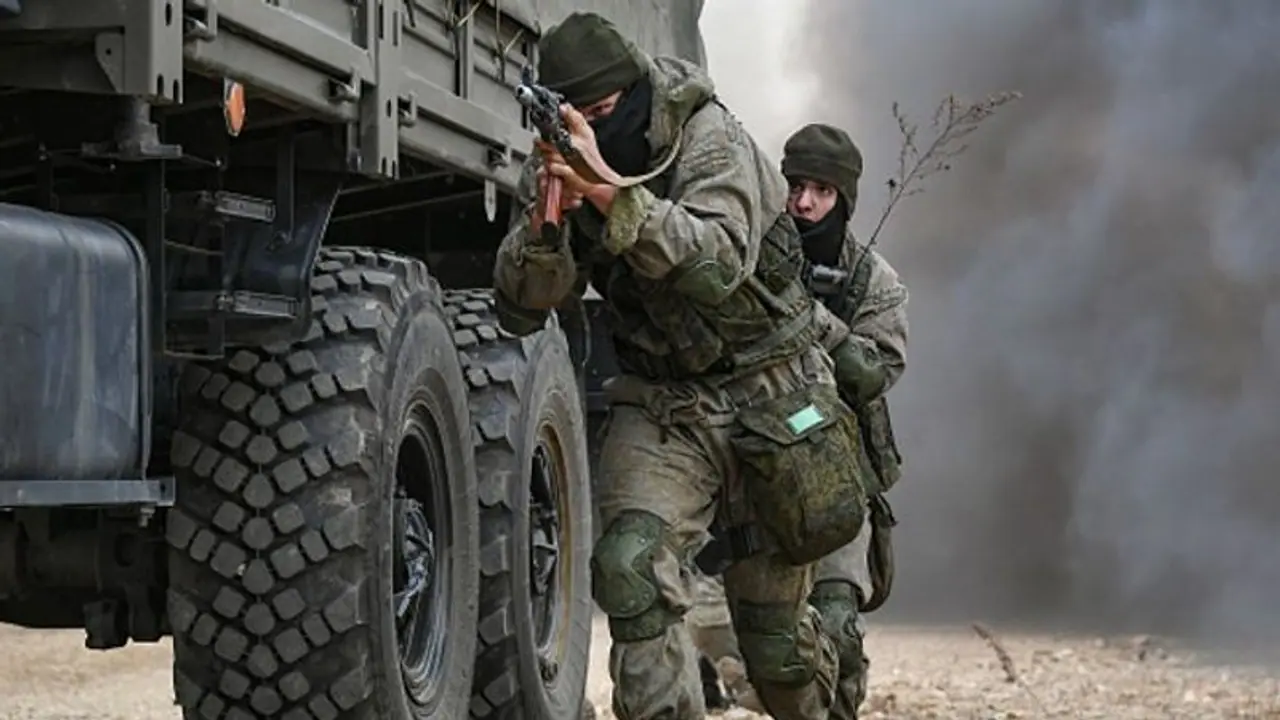Stating that India has to remain prepared for any kind of warfare, Indian Army chief Gen MM Naravane said that the forces can learn many things from the ongoing conflict between Russia and Ukraine.
Stating that India has to remain prepared for any kind of warfare, Indian Army chief Gen MM Naravane said that the forces can learn many things from the ongoing conflict between Russia and Ukraine.

The war between Russia and Ukraine has now been on for 13 days. Moscow launched the invasion citing territorial issues and the eastward expansion of the United States-led NATO. This was after Ukraine had expressed its willingness to join NATO.
Also Read: Ukraine claims Indians among foreigners fighting against Russia
"There are many lessons that can be learnt from the ongoing Ukraine-Russia war. The crisis shows that wars can happen at any time & we have to remain prepared for them. The wars wouldn't just be non-kinetic & would be fought in the physical domain also," Gen Naravane told news agency ANI.
Reiterating that the future war can be fought with indigenous weapons and equipment.
The Indian Army chief said that the most important lesson emerging from this war was that the nation needed to be ready to fight future wars with indigenous weapons.
Also Read: In the name of 'patriotism': Ex-Russian spy Anna Chapman cashes-in on Ukraine war
Stating that wars of the future should be fought with indigenous weapon systems, General Naravane said steps towards Aatmanirbhar Bharat in the defence sector need to be taken immediately.
It must be noted that India and China have been engaged in a border standoff since May 2020 in eastern Ladakh. So far, the two sides have held 14th rounds of talks.
The next round of military discussion would take place on March 11 in Chushul on the Indian side. The forces have disengaged from several friction points, including North and South of Pangong Tso, Galwan and Gogra heights.
Sources in the defence establishment said that both sides will now focus on achieving the resolution of the balance friction areas. Recent statements from New Delhi and Beijing that have called for a mutually acceptable solution have been encouraging and positive in nature.
The areas which are yet to be resolved, include Hot Springs, Demchok and Depsang. New Delhi has been insisting on a comprehensive disengagement and de-escalation of the situation in eastern Ladakh. While Beijing has been reluctant to discuss Depsang and Demchok, maintaining that they were not a part of the current stand-off.
Also Read: Explained: Why Ukraine's nuclear power is its biggest worry today
